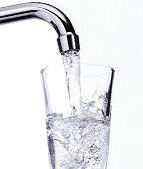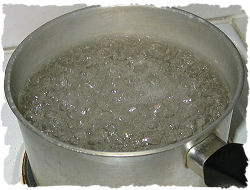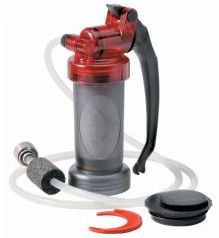Is the Overseas Tap Water Safe to Drink?
Is the overseas tap water "safe to drink" is a common traveling question. While one can always play it safe and stick to bottled water everywhere, this may be an expensive part of a trip and better alternatives may exist. Bottled water also has serious environmental impacts, including the extraction and transportation of the water and the plastic bottle -- that in most places around the world -- will not be recycled but rather add to the garage problem. We urge you to think about the environment and consider other options when possible when traveling.
What Makes the Tap Water Safe or Unsafe?
Many things can contribute to "unsafe" water, such as contamination by human and animal waste, by chemicals, by viruses, or by other biological activity (such as bad bacteria, protozoans, or parasites). Water can also have a undesirable taste, typically if it is pulled from a well high in mineral or salt content. Even the process of disinfecting the water can leave the unpleasant taste of chlorine. Exposure to these organisms can cause serious illness, and in some cases may be fatal.
Methods of Purification of Water
There are six basic ways to address overseas tap water safety problems:
- Clean Tap Water: Usually readily available in modernized countries, the filtration and purification process is done on a large scale for everybody
- Bottled Water: Easy to obtain in most places, high environmental cost, not always reliable
- Boiling: Simple to do when you have a heating source, which is practical when camping, not when staying in a hotel
- Distilling: More difficult than boiling, not practical due to equipment requirements
- Filtering: Simple to carry a filter with you and reasonable results, but does not deal with all viruses
- Purifying: Kills viruses, but does not remove particulate matter, if iodine-based then only for short-term use
And our overseas water treatment method recommendations and concerns:
Clean and Safe Tap Water
 Clean tap water is usually available in urban settings within first-world nations. However it is always worthwhile to check with a local source (e.g., hotel front desk) to see if the water is safe to drink. If the water is drawn from a well source, it could have a 'hard' and unpleasant taste or smell to it. This taste can sometimes be hidden with a few drops of flavouring in the water.
In rural settings in first-world nations, be a little more suspect of the water source as it likely hasn't been treated. Again asking locally will likely lead you to a decision to drink the water or not.
Bottled Water
Many travelers rely purely on bottled water as their only source of water when traveling in areas where water sanitation might be a problem. While this is the most effortless of water treatment solutions, it is important to understand that it is certainly not the most reliable.
 The major problem is availability. One can never be sure that bottled water will be available everywhere they travel. None of us want to spend a valuable vacation afternoon trying to locate a reliable source of bottled water. Even if you are able to find it, there is no guarantee that the bottle of water you purchase is truly safe; with some empty bottles and a garden hose, anyone can fill used bottles and sell it again (so always check the seal before purchase). More elaborate schemes involve a bottle capper or some shrink-wrap plastic for the top, again supplies that are easy to obtain to trick the average traveler into thinking that the water is safe.
Many travelers will spend ample time searching for that bottled water source or just 'go without', which will likely be paid for later on in the vacation with dehydration headaches and illness due to not taking in enough fluids.
Bottled water also has the highest environmental impact. Don't be looking for that recycling bin to toss the used bottle as there likely isn't a recycling program in the country you are visiting. Many third world nations are littered with garbage, which includes water bottles. There is also the extraction of the bottled water from some source in the first place, which in almost all cases is just regular tap water that has been filtered. Then the water has to be trucked to where you buy it in disposable plastic bottles with disposable plastic lids packed in disposable cardboard boxes.
Boiling Water
 While it is true that boiled water is biologically pure water, it should not be relied upon as the sole source of drinking water. Most travelers do not have a stove and pot at the ready when they need water, and it is never wise to be dependent on others for boiled water. We have heard from travelers who have requested boiled water from their hotel front desk, and then have become terribly ill on the "boiled" water that was delivered. Both the water and the container must be sterilized to avoid contamination and the water must also be "boiled", not heated to near-boiling temperatures as is typically done in China and Taiwan. Also note that at elevation, water must be boiled longer to be treated.
Water Distillation
 Water distillation will kill and remove bacteria, viruses, cysts, heavy metals, and particulate. For all intents and purposes, distilled water comes closest to the definition of pure drinking water, and the distillation process removes the broadest range of contaminates of any point of use system.
Distillation can be a wonderful answer for pregnant women, iodine sensitive individuals, or long term travelers. Just like any other purification process, however, distillation does have its drawbacks. First of all, it requires a reliable source of electricity or heat. Most distillers process about 500 mL or one pint of water every hour or so, which leaves little leeway in between outlets. Distillers are also the heaviest and bulkiest of water purification systems and definitely not something you can pack in your carry-on bag.
You may come across distillation systems when staying at remote locations, such as a base camp, safari camp, and the like where it is a semi-permanent structure and they have planned out their water requirements.
Water Filtration
Water filtration devices are one of the most economical answers for long-term travelers or groups. Those equipped with effective filters (0.2 µm) remove all of the bacteria and parasites, and some of the viruses without changing the taste of the water, and without a waiting period. Many filters can be cleaned and reused repeatedly, keeping the cost per litre very low.
 |
Note that filtration does not remove the smaller viral components within the water, so if viruses are of concern, then the water must also be purified.
Although a hand or battery operated filter will take up room in your luggage, it will provide virtually unlimited drinking water in areas where the water is questionable. The down side is that you have to pump the water into a suitable container and unpleasant tastes are generally not removed (but can be removed by additional charcoal or the addition of flavouring). A good water filtration system can be purchased for about US$ 50 or € 35.
Some hotels provide large (20L+) filtered water dispensers as part of your room price or for a nominal charge. You can fill your water bottle from this for use during the day. Alternatively in some locations you can purchase larger containers (5L+) of filtered water from grocery stores and bring this back to your hotel. In some countries, filtered water is sold on the street or in stores via a machine that you place your own bottle under and fill for a price. |
Water Purification
Most purifiers use iodine as the active ingredient and are extremely effective when used correctly. Iodine tablets are extremely compact and are terrific for brief stopovers, or for use with filters when viral contamination is suspected. Used alone, the I-2 formulation is the least efficient, with each tablet requiring up to 30 minutes to purify one litre (or one quart) of water.
Iodine has its share of problems though:
 - Many people object to the taste of the iodine. This can be greatly improved by adding ascorbic acid, which will neutralize the taste, but will also neutralize the iodine if added before the 30 minute waiting period has elapsed.
- Tablets deliver the largest dose of iodine, approximately 8ppm, and are therefore not recommended for extended use as the sole source of water.
- To purify extremely cold water (mountain streams) the iodine dosage must be doubled.
- If you have an allergy to seafood, you may be allergic to or sensitive to iodine-based treatment. If you have thyroid problems, then you need to find an alternative to iodine treatment.
Alternatively, a demand release resin is available as an alternative to iodine tablets. The resin contains iodine ions that are released only when a microorganism enters the resin bed. The iodine is then released, enters the cell, and deactivates it, rendering the water microbiologically pure. Because the iodine is released only upon demand, the dosage of iodine is dramatically reduced (typically about 2ppm as opposed to 8ppm with iodine tablets). The residual iodine is also very important in preventing repeat contamination.
Also keep an eye out for Chlorine Dioxide (CIO 2) treatment chemicals. These come in a package of two vials that are combined and added to water to purify as needed. There is no iodine present in the chemicals and they will neutralize most bacteria and viruses present in the water. Suppliers of Chlorine Dixoide include Advance Chemicals.
Combination Water Filtration and Purification
 These are by far the best broad-based destination combination for world travelers:
- Water is pumped through the filter, removing the larger, harder to kill parasites.
- Water then passes through the iodized resin bed, where bacteria and viruses are deactivated.
- Since the hard-shelled creatures are filtered from the water before the iodized bed, there is no need for a waiting period. The water is safe to drink as soon as it emerges from the purifier.
- Many systems incorporate a carbon filter at the final stage of purification. These filters absorb traces of residual iodine and greatly improve the flavour of the water. You may still choose to add a few drops of flavouring to hide the water taste, if desired.
Alternatively to the iodized resin bed in the filter, you can also buy a UV purification rod (shown to the right). These are battery-powered devices placed in your filtered water to render bacteria, viruses and protozoa inert. No iodine is added to the water, but make sure to carry extra batteries.
Concerns with All Overseas Water Treatment Methods
 Do realize that none of the above methods are 100% effective. The combination filtering and purification method will remove about 99% of the potential water problems. Boiling and distillation requires clean equipment and correct procedures to be followed throughout the process. Both bottled water and clean tap-water cannot be fully trusted either.
The best approach is to take along your own filtration and purification equipment, use other trusted sources of water when available, and make sure that you are up-to-date on your vaccinations. Many travelers also avoid ice cubes, salads, and fruits that do not have to be peeled. Some travelers also brush their teeth with bottled water and don't open their mouth in the shower. Problem is that you don't quite know what is going on in restaurants and bars and there is no way to completely stop water from getting into your mouth during a shower, so there is no way you can be fully 'pure' on your travels. We therefore recommend being cautious, but not paranoid, on your world travels.
Written by Steve Romaine.

|




 The major problem is availability. One can never be sure that bottled water will be available everywhere they travel. None of us want to spend a valuable vacation afternoon trying to locate a reliable source of bottled water. Even if you are able to find it, there is no guarantee that the bottle of water you purchase is truly safe; with some empty bottles and a garden hose, anyone can fill used bottles and sell it again (so always check the seal before purchase). More elaborate schemes involve a bottle capper or some shrink-wrap plastic for the top, again supplies that are easy to obtain to trick the average traveler into thinking that the water is safe.
The major problem is availability. One can never be sure that bottled water will be available everywhere they travel. None of us want to spend a valuable vacation afternoon trying to locate a reliable source of bottled water. Even if you are able to find it, there is no guarantee that the bottle of water you purchase is truly safe; with some empty bottles and a garden hose, anyone can fill used bottles and sell it again (so always check the seal before purchase). More elaborate schemes involve a bottle capper or some shrink-wrap plastic for the top, again supplies that are easy to obtain to trick the average traveler into thinking that the water is safe.





